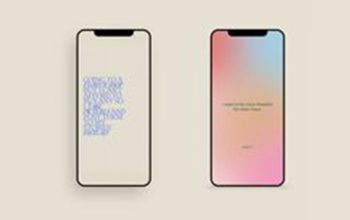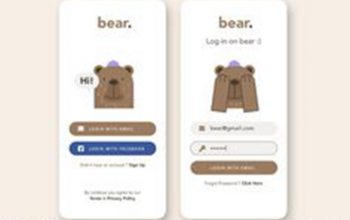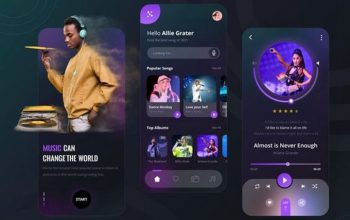In April 2021, Google introduced some vital adjustments regarding “steering to enhance your app high quality and discovery on Google Play” (Android Builders). In abstract, there are new pointers and insurance policies efficient on the Play Retailer from September 29, 2021. Learn this weblog to reply the “what”, “how” and “why” these adjustments have been made.
Desk of Contents
Google Play’s Metadata Coverage
The primary a part of the announcement associated to a coverage change that can have an effect on app metadata:
- Up till September 29, 2021, app names on the Play Retailer may very well be as much as 50 characters. Nevertheless, with the brand new coverage replace, Google requires app titles to be shortened to solely 30 characters (the identical restrict as for app titles on the App Retailer).
Supply: https://android-developers.googleblog.com/
Further adjustments embody:
- The prohibition of key phrases that counsel retailer efficiency (“high”, “finest”, “#1”) from the title, icon, and developer identify.
Supply: https://android-developers.googleblog.com/
- The elimination of graphic parts that will mislead customers (e.g. don’t use textual content to incentivize installs or promote offers) within the app icon and title.
Moreover:
- Builders should present a transparent and well-written app description that showcases the app’s options and performance.
- No unattributed or nameless consumer testimonials within the app description.
- No emojis, emoticons, or repeated particular characters within the app icon, title, or developer identify.
- Keep away from writing in ALL CAPS except it’s a part of your model identify.
With the updates efficient on Google Play since September 29, “app title[s], icon[s] and developer identify[s] that don’t meet the upcoming insurance policies won’t be allowed on Google Play.” A number of examples from Google present what parts ought to – and what shouldn’t – be included within the app metadata. The key phrases, “high”, “#1”, “finest”, “free”, “no adverts” or “advert free” are all phrases which are now not allowed within the app title, icon, or developer identify.
As well as, additional key phrases that encourage customers to take motion, equivalent to “replace now” within the icon or “obtain now” within the app identify, are frowned upon. Emojis/emoticons, repeated punctuation, or all caps are further examples of don’ts that might result in your app being rejected.
Google additionally introduced new pointers for characteristic graphics, screenshots, and movies. All the shop itemizing preview property have to showcase the app’s options and performance so customers can anticipate what the app or recreation expertise shall be like. Keep away from including any type of call-to-action, for instance, “Obtain now,” “Set up now,” “Play now,” or “Attempt now” and keep away from time-sensitive taglines or captions that may turn out to be outdated rapidly.
Influence of Google Play coverage adjustments on ASO
Relating to App Retailer Optimization, what do these coverage adjustments imply on your apps or video games? The 2 primary areas that can have an effect on ASO on the Play Retailer would be the title size and selection of key phrases.
Beginning with the title, the next impacts on ASO will be anticipated:
- Whereas these adjustments do cut back the accessible house so that you can use key phrases, everyone seems to be required to observe the identical pointers. Because of this builders should select probably the most related and beneficial key phrases for his or her app(s).
- Different future front-end or back-end adjustments could come into play, such because the elevated use of Google Tags, new methods of that includes apps/video games, and so forth.
- The title change notably impacts languages that require extra space to convey messages, equivalent to French, German or Arabic. Then again, it impacts Japanese, Chinese language, and Korean localization efforts barely much less.
The second space associated to ASO is the prohibition of using particular key phrases:
- Phrases like “free”, “high”, “finest”, and #1 are now not accepted – because of this, ideally, all apps/video games may very well be listed for these key phrases, and together with them won’t give an additional benefit. This may appear to be an unlucky change in case you presently have these phrases in your metadata, but it surely encourages using extra related key phrases, relatively than phrases meant to play the algorithm for higher rating.
What occurred after Google Play’s metadata coverage adjustments?
These adjustments have been carried out on Google Play from September 29, 2021. Earlier than this date, it was unclear as to how Google would penalize apps that didn’t adjust to the brand new guidelines.
Whereas some app builders selected to respect the deadline and keep away from risking any hurt to their app, others have chosen to depart their title unchanged till they see an actual risk. Though Google’s penalties for apps that didn’t respect this deadline stays unclear, if in case you have not up to date your metadata but, it is best to do it as quickly as doable.
Among the many app builders that saved their 50-character title, some noticed their rankings drop for key phrases showing after the thirtieth character, whereas others noticed their rankings stay secure.
Has Google penalized apps that haven’t up to date their title?
We in contrast rankings for key phrases within the titles of a number of Android apps earlier than and after the coverage change to find out whether or not Google has penalized non-compliant apps. From what we noticed, some apps have misplaced visibility for key phrases included of their title; nevertheless, we’ve got not seen such conduct in a enough variety of apps to make any definitive statements.
Right here’s an instance from CSR Racing 2, a recreation that up to date its title 16 days after the metadata coverage replace (Google Play, UK).
CSR 2 key phrases’ rating historical past on the UK Play Retailer (2021).
It seems to be like some key phrases included within the title decreased in rankings from September 24—that’s, 4 days earlier than the official enforcement of the brand new coverage. It’s laborious to say whether or not Google had truly began pushing down apps that had not but shortened their title or if these key phrases misplaced visibility as a consequence of different causes (e.g., fierce competitors, improve in poor score scores, or drop in conversion charge and/or installs).
Harry Potter: Puzzles & Spells key phrases’ rating historical past on the US Play Retailer (2021).
From the info, we are able to assume Google’s metadata coverage replace didn’t have any adverse impression on rankings for generic key phrases included in Harry Potter: Puzzles & Spells’s title. Rankings began lowering extra severely round October 6, which is smart as this adopted the elimination of “match 3 video games” from the title. Subsequently, we cannot assume that apps that didn’t shorten their title to 30 characters misplaced visibility following Google’s metadata coverage change on September 29.
We will see within the upcoming month whether or not Google continues to tolerate apps with titles longer than 30 characters or whether or not Google begins making use of extra extreme measures.
Has Google penalized apps for forbidden key phrases in metadata?
Some members of the ASO Stack Slack neighborhood shared warnings obtained from Google for having key phrases like “first”, “sizzling”, “finest”, “bonus” or “new” of their app identify and/or quick description, regardless of the context.
Warning message seen by apps for having banned key phrases of their title on the Play retailer (2021).
Although Google had initially solely communicated about these key phrases being banned from app titles, it seems to be like they’re additionally extending key phrase restrictions to the quick description. On Google Play Console Assist, right here’s what we learn in regards to the quick description:
“Don’t use language that’s not associated to the perform or objective of your app, together with:
- Language that displays or suggests Google Play efficiency, rating, accolades or awards, consumer testimonials, or worth and promotional info, for instance, “Greatest,” “#1,” “High,” “New,” “Low cost,” “Sale,” or “Million Downloads.”
- Name-to-actions, for instance, “obtain now,” “set up now,” “play now,” or “strive now.”
We requested ourselves whether or not Google had truly taken a step additional by pushing down apps that included banned key phrases of their metadata. Let’s check out Hill Climb Racing 2 (Google Play, UK).
Although its app identify was already solely 30 characters lengthy, its quick description included the key phrase “finest” for a while after the coverage launch. They eliminated “finest” on October 15 however added “high” as an alternative, which can be stated to be a prohibited key phrase. Round 10 days later, the one change the app made to its quick description was to take away “high”. We’d assume that Google in all probability warned the app for utilizing this time period.
Hill Climb Racing 2 metadata updates on the UK Play Retailer seen on AppTweak’s Timeline (2021).
Hill Climb Racing 2 key phrases’ rating historical past on the UK Play Retailer (2021).
Amongst key phrases included in its metadata, we’ve got noticed rating decreases for the key phrases “race”, “driving recreation”, and “racing” from September 8. It doesn’t appear to be Google’s metadata coverage replace had any impression: rankings have been fairly irregular for a while.
We had a have a look at different markets, particularly Japan the place many apps explicitly present obtain numbers to encourage customers to put in the app. For example, the Japanese app クラッシュフィーバー (Crash Fever) nonetheless reveals banned key phrases in its quick description and icon however we’ve got not noticed any drop in its visibility.
クラッシュフィーバー (Crash Fever) quick description replace on the Japan Play Retailer seen on AppTweak’s Timeline (2021).
Has Google penalized apps for forbidden graphics in icons?
In line with Google’s new coverage, apps also needs to now not present graphic parts that point out rankings or deceptive parts on their icon.
The Japanese app エバーマージキングダム:マージ3パズル (Evermerge Kingdom) is an efficient instance of this because it shows the variety of downloads on its icon.
エバーマージキングダム (Evermerge Kingdom) key phrases’ rating historical past on the Japan Play Retailer (2021).
Nevertheless, the visibility historical past of key phrases included within the app’s metadata doesn’t present any clear correlation with the coverage change.
エバーマージキングダム Evermerge Kingdom) That includes Historical past on the Japan Play Retailer (2021).
We investigated a bit additional and checked on AppTweak’s Discover part whether or not Evermerge Kingdom has misplaced visibility in Google featurings. The outcomes don’t present any vital drop; the variety of featurings stay fairly irregular.
Why has Google modified its insurance policies?
Recently, each the App Retailer and the Play Retailer have obtained a lot consideration and scrutiny for numerous practices, together with price assortment or rip-off apps with excessive subscription prices. Google’s newest transfer seemingly displays its intention to clear up the Play Retailer and permit higher-quality apps and video games to shine. These new pointers will make the Play Retailer extra just like the App Retailer, now with the identical title size and related positions on deceptive key phrases.
There are numerous darkish patterns being utilized by apps that wish to play the “grey space” in between the rule, with ways equivalent to together with 5-stars in screenshots when the app score is decrease, false promoting, and concentrating on of irrelevant key phrases. Consequently, Google could also be making an attempt to limit the frequency of such practices.
One other principle pertains to the truth that Google is presently engaged on Android 12. With the leaks of Google’s new “Whitechapel” chip, it’s doable that these Play Retailer adjustments might accompany a complete new look for the Play Retailer and Android generally.
Efficient from September 29, 2021, Google’s coverage adjustments for Play Retailer metadata embody:
- Varied prohibited key phrases, equivalent to “free”, “finest” and “#1” that indicate retailer efficiency, promotion within the icon, title, quick description and developer identify.
- Steering for app icons and screenshots concerning deceptive photos and formatting.
- Shortened title house restrict to 30-characters from the present 50-character subject.
For now, we’ve got not seen clear measures enforced by Google to punish non-compliant app builders. Whereas some app builders with titles longer than 30 characters have seen decreases of their visibility, different “dangerous pupil” apps haven’t essentially misplaced rankings. As for banned key phrases/graphics in titles, quick descriptions and icons—though apps have obtained warning messages on the Google Play Console—most rating historical past graphs don’t present any decreases that we might hyperlink to the coverage. Let’s see whether or not these warnings truly flip into concrete penalties within the coming months.
Although we cannot attain any conclusion as as to if is penalizing non-compliant apps or not, we nonetheless suggest apps that haven’t up to date their metadata but to take action as quickly as doable.




